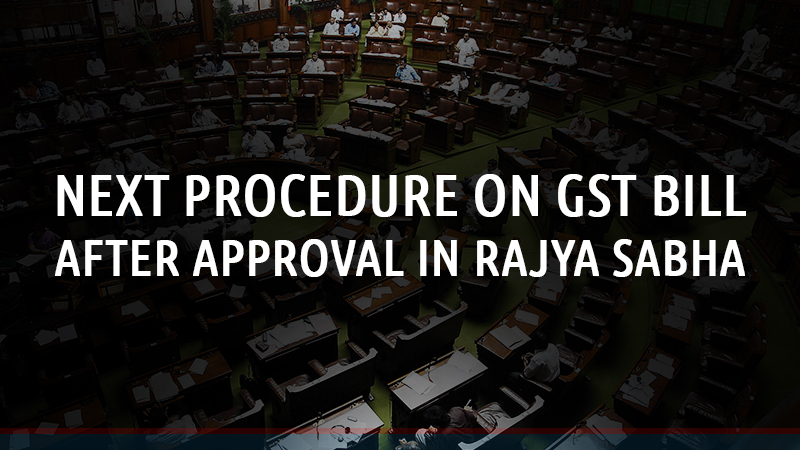GST Bill passed in the Rajya sabha with 203 votes in favour, within the 243 member in house. The GST Bill will replace a raft of all sates and local taxes under a single unified value added tax system in order to make the nation a big single market. The power is in the hands of the centre to levy taxes such as excise and empower states to collect retail taxes. This will be carried with the 122nd Constitution Amendment Bill.
Read Also: Big Analysis of GST Amendment Bill Through CA Eyes
GST Bill Next Proceedings as Follows:
The Goods and Service Tax which will be shortly applied across whole nation. If everything goes smooth and minimum hurdles, after the employment of GST, there will be an urgent need for some framework and management to be applied as soon as possible. Here we discuss some upcoming actions and implementations within the legal structure of the nation which will command soon after the GST comes into force.
Step 1: The Legal Framework of the Nation will be including:
- Ratification and amendments by 50% of state assemblies to become the Law
- Presidential approval to the Constitutional Amendments
- Development of GST Council
- Advocating for Model GST laws by GST Council
- Cabinet approval for the CGST and IGST laws by the centre and for SGST laws by all the states
- Passing of Central Goods and Service Tax and Integrated Goods and Service Tax Laws in the center and State Goods and Service Tax in the states of the nation
- Communicating the GST rules
Step 2:
- To build a Goods and Service Tax Network (GSTN)
- To establish a server of Back-end system of center, states, taxpayers and all intermediaries. Timeline: Till December
- Commencement of testing and furnishing of the GST infrastructure. Timeline: January-March 2017
Step 3:
- Start training the staff and officials of center and state government which are near about 60,000
- Also training of laws accumulated in GST. Timeline: December 2016
- GST IT infrastructure training. Timeline: December 2016-March 2017
- To reach further and imprinting the path of action for trade and industry. Timeline: March 2017
Along with all these mentioned courses of actions which GST will apply conservatively, there are also some further steps which are to be taken care of like GST registrations. For the existing dealers, all the available registered details will be exported to the GST IT infrastructure. And for the New dealers, the application will be filled out on a single form.
GST Council
This Council is a group of members who represent the state and center for the GST propose. This Counsel is work for the development of GST draft law, (CGST /SGST/IGST), for drafting of return and maintain of rules and regulations, notifications Tax Rates, exemptions rules for GST.
The recommendation of the council this will be approved by the various legislative bodies.
Recommended: GST Benefits for Startups in India
